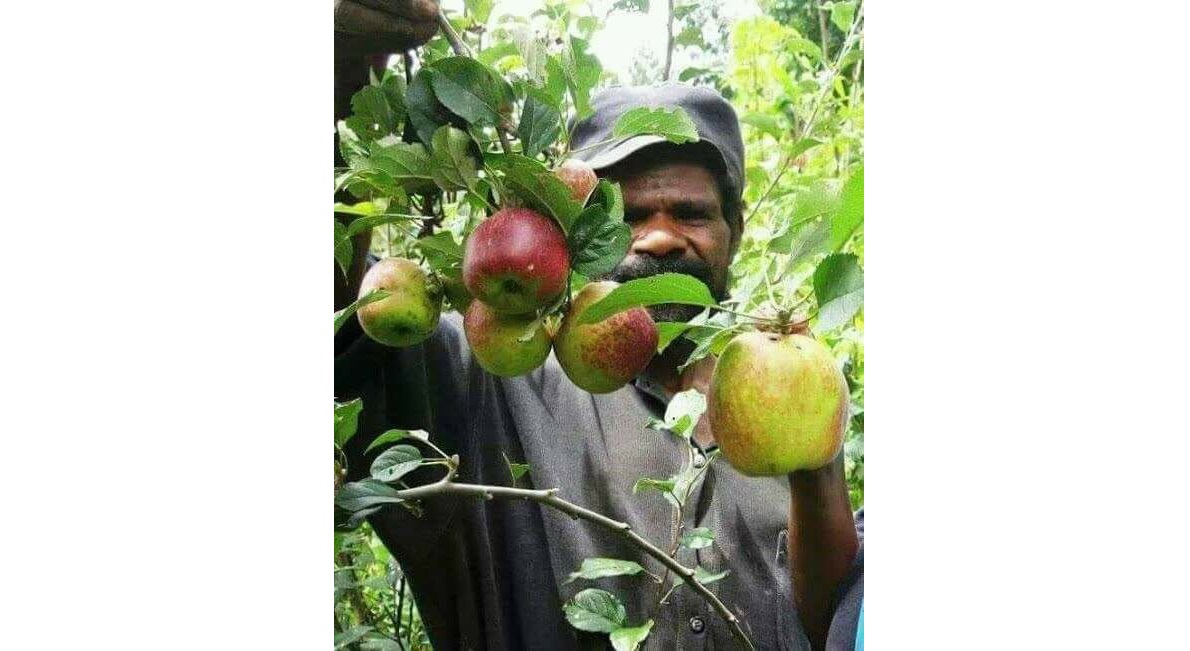A farmer showing off locally grown apples. Photo credit: Lydia Paul
As Papua New Guinea’s National Agriculture Research Institute (NARI) continues limited studies into apple production, the fruit is already being cultivated in various parts of the country on a small scale.
In Morobe, Western Highlands, Jiwaka and Eastern Highlands, farmers are defying long-held suggestions that apples can’t be grown in Papua New Guinea.
In Hakwange in Menyamya District of the Morobe Province, a farmer brought apple samples to a public gathering. While he didn’t get the support he wanted, he told more than 200 people that he had planted more than 20 trees on the mountainside across the river.
He said it was difficult to get to but it was a start and he wanted government support.
Recently, more pictures have emerged of other farmers in Menyamya who have been growing apples in abundance.
For NARI, this is an encouraging development despite the fact that there is very little government support in this area of research.
“This is not considered as a priority,” says Dr Sim Sar, of the National Agriculture Research Institute in Lae. “The key aspect of apple growing is that the flowering is triggered by seasonal change during winter.
“In Papua New Guinea, commercial farming can happen but there has to be good management using hormonal treatment to induce flowering.
“But it is encouraging to see that farmers are growing apples from the seeds in high altitudes where the climate is good.”
Apples are not the only “foreign” fruits being grown in Papua New Guinea.
In Jiwaka, Morobe and Eastern Highlands provinces, families are farming grapes. The backyard vineyards are challenging lethargic government agricultural priorities.
After being unseated in the 2017 elections, Former Morobe Governor, Kelly Naru began a small venture producing beverages using locally grown grapes in the Boana area of Nawaeb District.
“We must appreciate the abundance in talent, wisdom, capacity and the blessings from the creator. Papua New Guineans must learn to utilize these opportunities to our benefit,” he told the Post Courier.
With the Papua New Guinea Government’s push for import reduction, local companies are slowly making the shift at the commercial level.
Mainland Holdings, which has a diversified portfolio of products including poultry, crocodiles, chickens and feed, has begun growing sorghum to reduce import dependence on Australia.
Trukai, PNG’s biggest rice distributor is also expanding local production. By the end of 2018, 200 hectares of rice in Morobe will be ready for harvesting. This is just part of a 500-hectare production farm in just one province.
Other provinces have also begun planting rice as part of Trukai’s push to reduce its dependence on rice imports from Australia.


